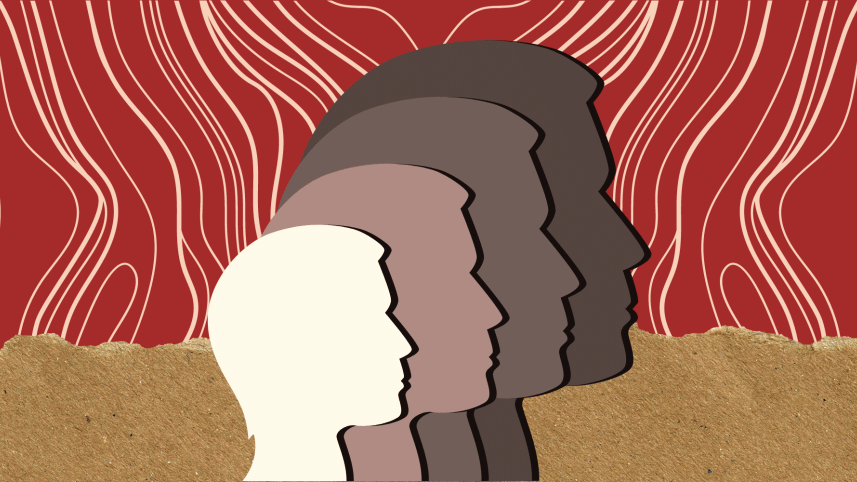Unpacking the layers of internalised racism

We all know that one friend who is more in touch with the group of cultures we bundle together as the "West", than they are with their own. They won't try local delicacies like moglai porota, but call it a deep-fried egg quesadilla, and they are most likely to dig in. But, as their numbers grow in increasingly concerning ways, it poses one question. Could this be the symptom of a bigger problem?
Internalised racism. Big words, but bear with me. It's a phenomenon where someone regards their own race to be inferior compared to another race. This reverence for the "superior" race is usually rooted deep in our subconscious. In our case, the reverence is usually towards white people.
In this day and age, teenagers are chronically online, in cyberspaces dominated by white content creators. When we see that popular TikTok star in their penthouse suite or eating at a Michelin 3-star restaurant, our mind wants to connect their wealth to the colour of their skin. We may subconsciously begin to associate success with race and that's where internalised racism comes in.
People with internalised racism constantly measure themselves against Western cultures and standards. When your lifestyle does not resemble that of the famous people you see on the Internet, it makes you insecure. It makes you despise your own culture and surroundings. It's not something one would ever voice openly, but rather feel and quietly anguish in.
At worst, it could make someone insecure about what they could never change about themselves: their skin colour. You look at what your idol looks like, and you look at yourself in the mirror. When you see the two things contrasting all the time, it serves as a constant reminder that you'll never truly be like them.
The harms of this mental hurdle are innumerable. It's not just a desire to erase your cultural identity, but it also gives rise to severe self-loathing. Since it's subconsciously developed, people don't realise why they're unhappy with their appearance. Their inability to pinpoint the problem further adds to their frustration, leading them to buy harmful products like fairness creams, or other skin "brightening" products. This insecurity sometimes even translates into not feeling beautiful no matter what you do to change your appearance.
Ultimately, trying to distance yourself from your own race creates a feeling of isolation, where you are unable to join the revered race due to inherent differences, and have trouble assimilating with your own group.
Not only is it a difficult problem to detect, it is a difficult topic to talk about. You can go to a friend screeching "INTERNALISED RACISM," but they're unlikely to understand or pay attention. We need to not only be aware of the problem ourselves, but spread awareness among our peers.
Instead of trying to be something we can never truly be, we should take pride in our own cultural identity. We should try to be more forgiving of our background, and embrace it. And instead of talking down to people, we can delicately bring it up. So, the next time you see that friend busting out cutlery to eat their polao and roast, instead of resorting to mockery, why not strike up a casual conversation about it?



 For all latest news, follow The Daily Star's Google News channel.
For all latest news, follow The Daily Star's Google News channel.
Comments